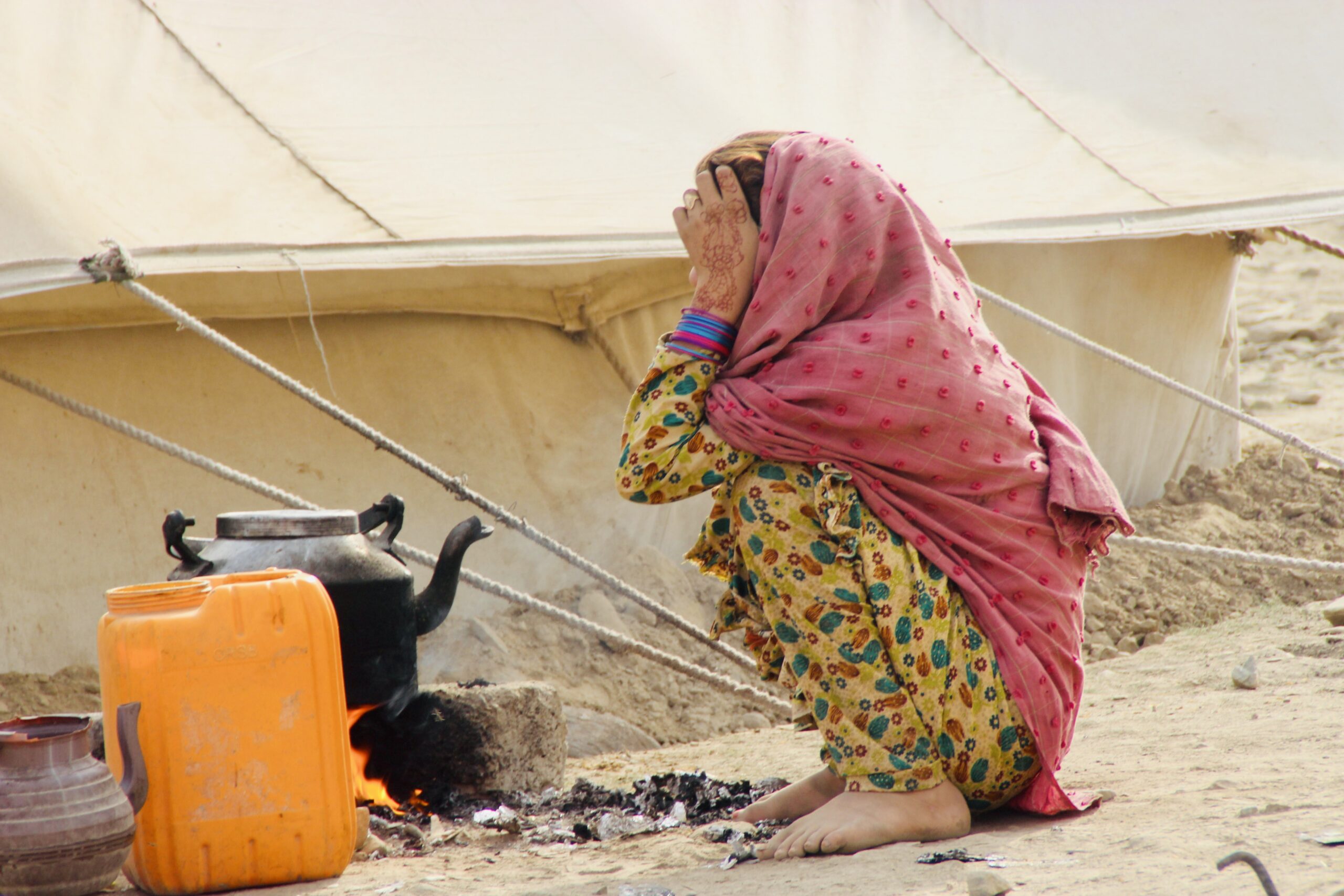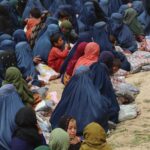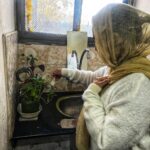Bibi, a mother from Afghanistan, wakes up every morning with a heavy heart, knowing that another day of struggle lies ahead. With deep lines etched on her face from years of hardship, she starts her day by doing laundry, cleaning homes, and cooking meals for families in her community. These tasks are not just chores for Bibi; they are her lifeline, her only means of earning food for her children.
Bibi’s Story
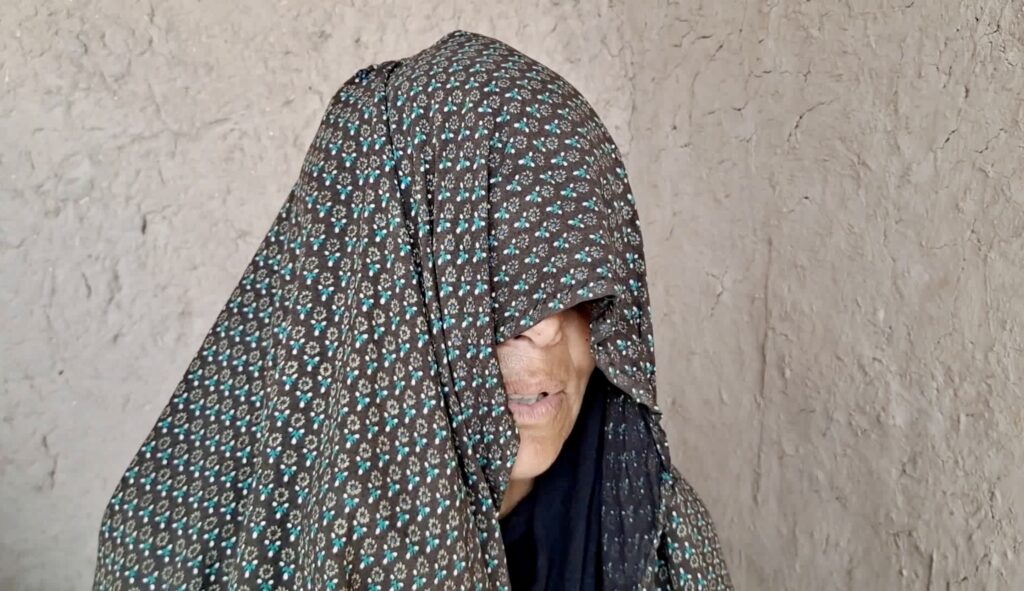
But despite her tireless efforts, there is often no food in Bibi’s house. She recalls the days when life was better, when she could provide for her family without worry. However, since the Taliban came to power, everything has changed. The cost of living has skyrocketed, and Bibi’s meager earnings are no longer enough to put food on the table.
“I am sick,” Bibi says, her voice trembling with emotion. “My heart pounds with fear every time I step outside, afraid that I will collapse from exhaustion. How can I afford to buy medicine when I can barely afford a meal?”
Every day, Bibi faces the harsh reality of her circumstances. Even the simplest tasks, like finding bread for her children, become monumental challenges in the face of poverty and despair. She longs for a glimmer of hope, a ray of light in the darkness that has consumed her life.
“We want you to help us,” Bibi pleads, her eyes filled with desperation. “Before, our life was good. Now, there is no food, no hope, only emptiness.”
Sidiqa’s Story
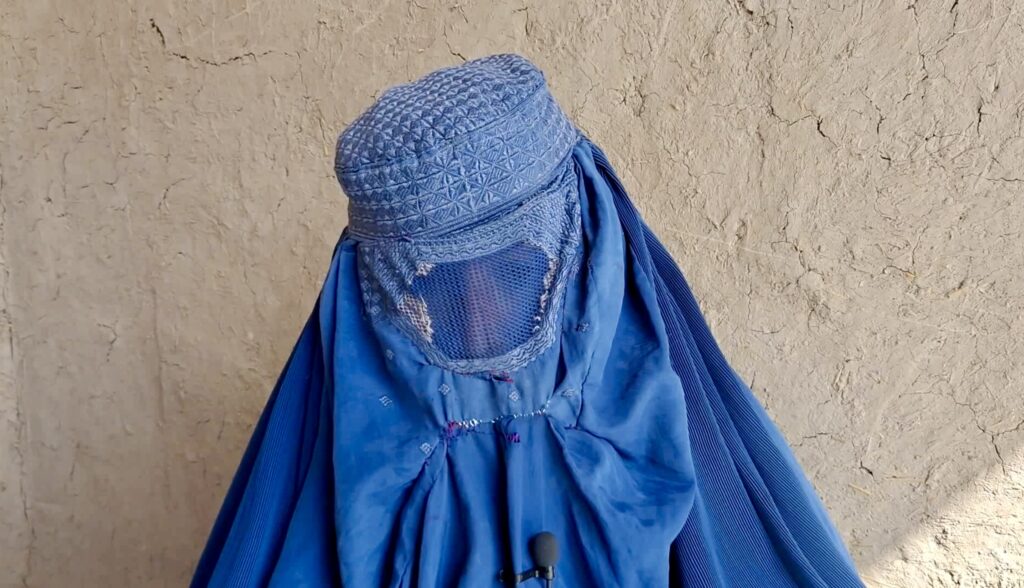
Sidiqa’s life is a constant battle against poverty and adversity. With three children to care for and a husband who is addicted to drugs, she struggles to keep her family together in the face of overwhelming challenges.
“We are facing poverty,” Sidiqa says, her voice tinged with sorrow. “We didn’t have enough wood to keep the stove burning all winter. We worry about our food, our home, our future.”
Once, Sidiqa and her family had a roof over their heads, but now they face the threat of eviction due to unpaid rent. “We rented this house,” Sidiqa explains, “but now we don’t have the money to pay. It was good before, when we could find work and provide for our family. Now, everything has changed.”
The Taliban’s strict rules and harsh punishments have only added to Sidiqa’s burdens. “If we go outside, the Taliban are arresting us,” she says, her voice trembling with fear. “They neither let us work nor make it easy for us to survive.”
Despite her husband’s addiction and the constant struggle to make ends meet, Sidiqa remains determined to provide for her children. “I request the officials to help me,” she says. “If I had a cow, I could sell its milk and support my family. But without help, I don’t know how we will survive.”
Shabana’s Story
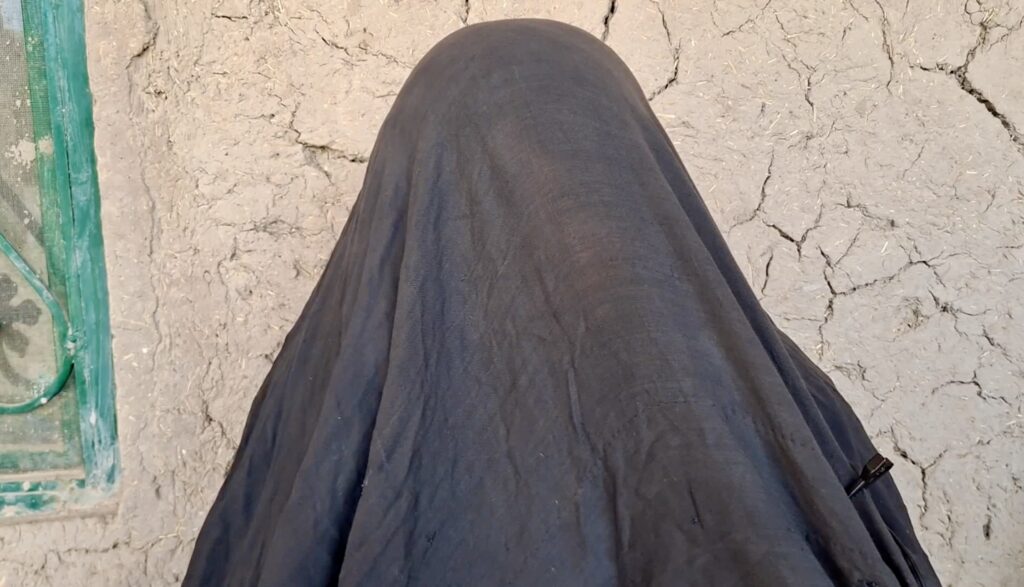
Shabana, a woman of unwavering strength and resilience, faces each day with courage and determination. As a service provider, she visits people’s homes to perform tasks in exchange for food—a meager livelihood that barely sustains her family in the face of mounting challenges.
“Life was good before,” Shabana recalls wistfully. “People from the government would come to our aid, offering assistance and support. But now, everything has changed.”
The Taliban’s resurgence has brought with it a wave of uncertainty and fear, leaving Shabana and countless others struggling to survive in a world that grows more hostile by the day. “Now, nobody gives us a job,” she laments. “I can’t find food for my children, and it’s very hard.”
Despite the hardships she faces, Shabana remains undeterred in her resolve to provide for her family. “Every day, I hold onto the hope that tomorrow will be better,” she says. “But two or three years have passed, and things have only gotten worse. Still, I will do whatever it takes to keep my family fed and safe.”
Parzana’s Story
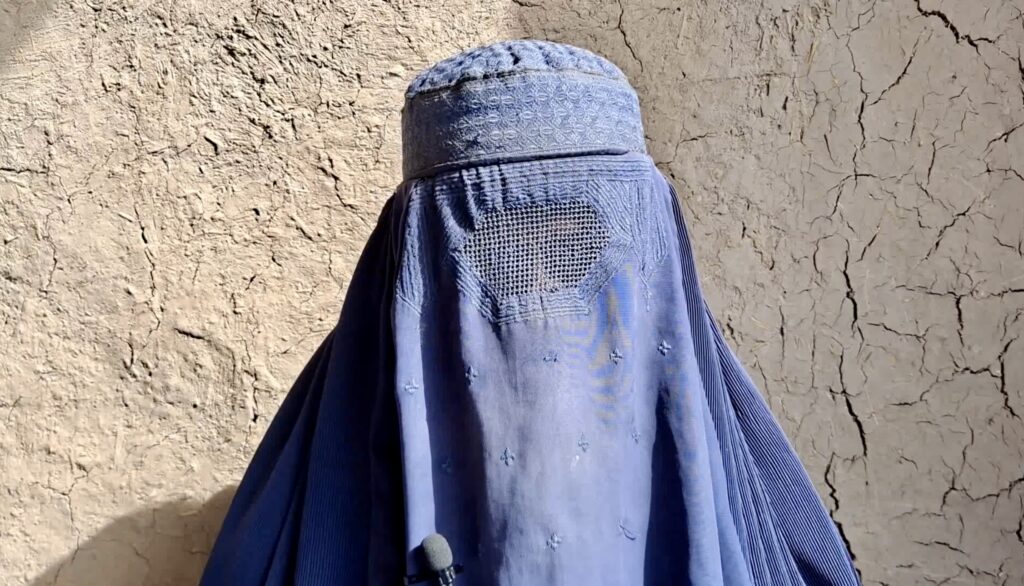
Parzana’s life is a constant struggle against overwhelming odds. With six daughters and a husband who suffers from mental illness, she bears the weight of her family’s burdens on her shoulders alone.
“My life is very difficult,” Parzana says, her voice heavy with sorrow. “My husband can only find work one day out of ten, and even then, he earns barely enough to feed us.”
The cost of living has soared in recent years, making it increasingly difficult for Parzana to make ends meet. “Before, life was easier,” she recalls. “My husband could find work every day, and we had enough to get by. But now, everything is expensive, and we struggle to put food on the table.”
Despite her own hardships, Parzana’s thoughts are consumed by concern for her children. “My children go to bed hungry every night,” she says, her eyes brimming with tears. “I worry about their future, about how we will survive in this world that shows us no mercy.”
With each passing day, Parzana’s hope dims, but she clings to the belief that someday, things will get better. “Every day, I pray for a miracle,” she says. “I pray for someone to see our suffering and offer us a lifeline, a way out of this endless cycle of poverty and despair.”
Pari’s Story
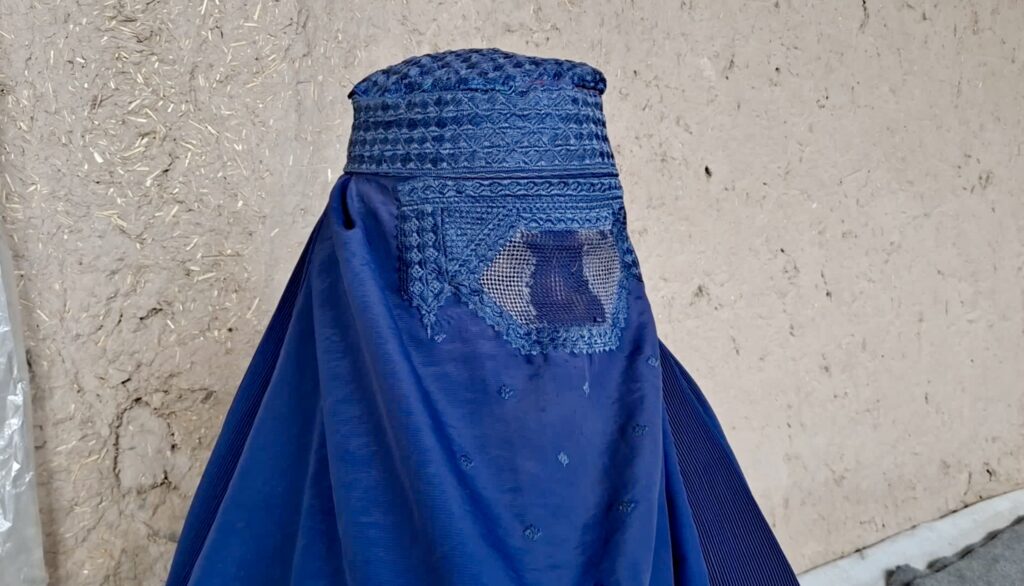
“My family has many needs,” said Pari, her voice heavy with worry. “It used to be easier when I could work, or when organizations would help us. The donations we received were like lifelines for my children.”
But now, fear grips Pari’s heart, tying her to her home. “I can’t go out anymore. If I even step into the city, I might be arrested by the Taliban,” she explained. “Even if I try to ask for help at the offices, they might arrest me too. This is the reality of being a woman under the Taliban’s rule.”
Pari’s ten daughters and her husband, who struggles with drug addiction, depend on her. “The Taliban arrested my husband, beat him, and now he’s not the same. I don’t know how to keep my daughters safe and on the right path,” she added.
Life has become even harder since the aid stopped coming. “I scrape together whatever food I can find to feed my children. Some days, there aren’t even slippers for their feet,” she said, her voice trembling with emotion.
With ten children to care for, Pari feels overwhelmed. “I’m like a mother to my husband too. When he was arrested, I used to bring him medicine,” she said, tears welling up in her eyes. “Now, with no help and no way to leave the house, I don’t know how we’ll survive.”
Despite the hardship, Pari clings to hope. “Every day, we pray for a better tomorrow. We hold onto the belief that things will improve,” she said, her voice tinged with resilience. “But these past few years have been so difficult. Sometimes, death seems like the only relief.”
The World Food Program has stated, “1 in 3 Afghans do not know where their next meal will come from.”
This alarming statistic underscores the significant hurdles the country faces in achieving Sustainable Development Goal 2 on Zero Hunger and improved nutrition.
Decades of complex and protracted conflicts, coupled with a changing climate, gender disparities, rapid urbanization, underemployment, and the economic fallout of the COVID-19 pandemic, present formidable challenges to food security efforts in Afghanistan. Over half of the population lives below the poverty line, exacerbating the situation, with food insecurity intensifying due to conflict and insecurity, which disrupt livelihood opportunities for entire communities.
Currently, an estimated 15.8 million people in Afghanistan are acutely food insecure, including hundreds of thousands who have been displaced by conflict since the beginning of the year. Vulnerable groups such as women, children, displaced persons, returnees, female-headed households, people with disabilities, and the poor are particularly susceptible to undernutrition. Despite some progress in recent years, undernutrition rates are escalating, with 2 million children suffering from malnutrition.
Environmental disasters further compound the challenges, affecting an average of 250,000 people annually. Floods, droughts, avalanches, landslides, and earthquakes disrupt livelihoods and severely limit agricultural productivity, which serves as a crucial income source for 44 percent of the population.
Quotes:
- “1 in 3 Afghans do not know where their next meal will come from.” – UN World Food Programme
- “Despite progress in recent years, undernutrition rates are now increasing and 2 million children are malnourished.” – UN World Food Programme
- “The impact of disasters and dependency on water from rain or snowmelt severely limit the productivity of the agricultural sector.” – UN World Food Programme
Support by IUF Asia Pacific
The video interviews for the report were conducted by brave female reporters from The Afghan Times, with the support of the IUF Asia/Pacific.


